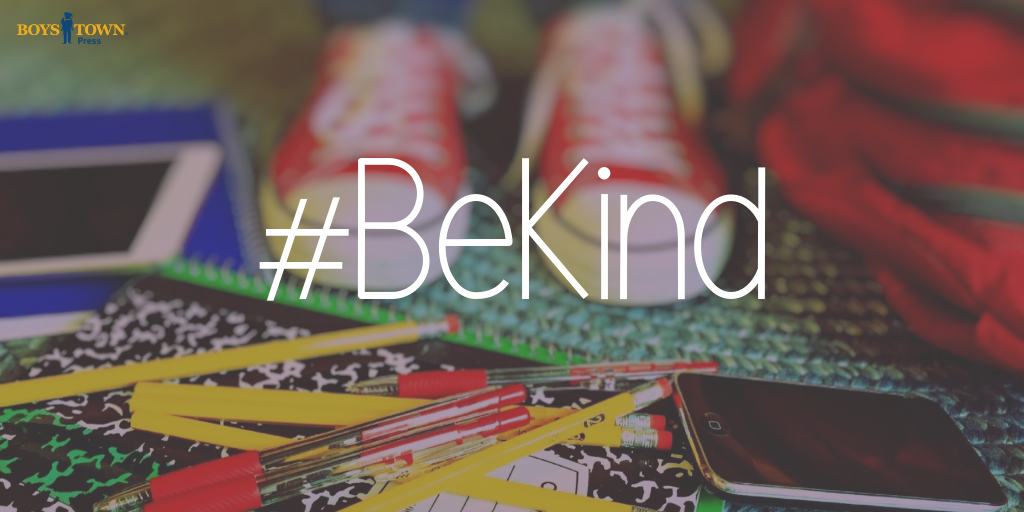Choosing Kindness: Part 1 - Learning from Our Children
Posted by Erin Green, Director of Boys Town Press on Sep 10th 2018

School conferences have generally been good experiences for my husband and me. With few exceptions, we often hear about our kids’ achievements, how they seem to be doing in class or at school, and hear very positive things about their behavior.
But when our son (who is now entering 10th grade) was in sixth grade, he hit a rough patch in school. He was doing fine overall, but definitely not living up to his potential in some classes. Homework had been missed, projects not done to completion, and just general shifts in achievement. We went to the school for a meeting and put a plan together to help him find success for the remainder of the school year and beyond. He is a bright kid who was bored with some of his classes, and who struggled finding value in day-to-day homework when he could ace the tests without doing it. Not the best attitude, but, hey, it happens, even to the best of us.
So when we went to the parent-teacher conference a few months later, we were anxious to hear from his teachers about how he was doing, and whether he was maintaining goals.
Enter the conference for his iDesign class. We knew he excelled in this area – technology and design had long been passions of his. So we were prepared to hear generally positive feedback about how he was doing in class, and what he had achieved so far that year.
But we were not prepared for this comment:
“Mr. and Mrs. Green, I have been teaching middle school for a long time, and I have seen a number of very talented children come in and out of my classroom, and your son is certainly one of those kids. But I want to tell you that what I appreciate most about him is that he is truly kind.”
Kind, I thought. “Well, thank you, yes, he’s always been a good kid… but how is he doing?...”
She interrupted, “No, I’m not just talking about his general behavior. I mean, he is KIND. He goes out of his way to show empathy and kindness toward other students. And that means more than just about anything else he could be doing in middle school.”
She then proceeded to tell us about a young man in the class who was in a wheelchair and had trouble managing all of the supplies he needed for the class. This included getting the keyboard in the right position, putting his reference books at a specific angle, or handling the orbs they used in class (picture small robotic spheres rolling around). She went on to say that, without being asked or prompted, our son always looked to make sure this young man had what he needed to be successful in that class.
And I thought again, kind. Here I was, expecting to hear about all of his achievements after a rough few months. I mean, kind is good and everything. Of course he’s kind, why wouldn’t he be? But does that really tell me how is he doing?
I paused for a moment and thought about it some more. Which led me to quickly beam with pride. What was I thinking? Of COURSE that tells me how he’s doing! Isn’t being kind an achievement? Isn’t it one of life’s most important goals? I realize it’s so difficult to measure, and rarely are there any metrics on a report card that detail the extent to which a child demonstrates kindness.
We thanked the teacher and went on to the next meeting. But after we left, I realized that this conference caused a deep soul searching within me. It helped me look at my own behavior differently. Were I in the same situation as my son, would it have occurred to me to make sure that the young man had what he needed for class – especially at that age? And even then, when I saw someone who could use some assistance, how much of a priority did I make it to help them? Was I modeling kindness? Was I encouraging my children to be kind, each and every day?
After all of this soul searching, I realized that I certainly could be better at all of this. And that it was time to make a concerted effort to choose kindness, to deliberately search for examples of kindness to point out to my children, and to more actively reinforce when my children choose kindness.
Read part 2 of this series on Monday, September 24: Teaching Kids to Choose Kindness.
